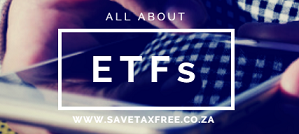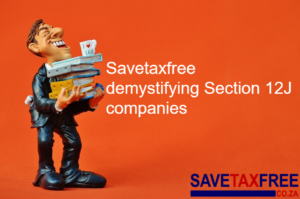Call accounts vs exchange-traded funds
By Leya Mall | 22 August 2018
Welcome back readers, to the Tax-Saving South African, where I walk with you in your personal journey through a range of financial themes
In my recent excitement over investing in a tax-free savings account (TFSA), it dawned on me … what about the money that’s left after salary deductions, monthly expenses and miscellaneous spending? If you’re in that fortunate position, surely the money shouldn’t just sit in a current or cheque account that offers minimal interest? Where should that money go?
I set out on a quest to discover the perfect home for my little bundle of joy every month (yes I’m one of those fortunate few that has a bit to spare because I still live with my parents). The first place I looked was at my local bank’s website for the call/savings account options.
The call account option seemed promising. It offers the advantages of both a savings and a cheque account, has no fixed deposit period and provides instant access to funds. But pshttt: the interest rates on offer are not at all appealing. Time then to check out exchange-traded funds.
These appear to be fantastic investment vehicles for novice investors. First, they’re passively managed, which means all the investments are pre-determined – the investment decisions are not made by a fund manager earning a fat salary and charging you a fortune to do so. For example, a “top 40” ETF invests in the biggest 40 companies on the JSE. Buy the ETF and you effectively become a shareholder in the biggest companies in South Africa. There are also ETFs focused on mining companies, financial companies and a range of other categories, so you have many options. And the cherry on top: they qualify for a tax-free savings account.
Like finding the perfect outfit to wear at work, let’s compare call accounts with ETFs, to get the right fit for you (see graphic below).
Most investment decisions are determined by your risk appetite. For a low risk option, a call account, that is issued by your bank is the perfect option for you. The only risk you have of losing your money is if the bank goes bust. There are many different types of call accounts including a tax-free account, a notice deposit account, a pure savings account and many more.Any investment in the stock market (an investment in equities) carries higher risk, because company shares are more volatile than cash investments that generate a steady stream of interest income.
So your ETF investment could lose money in the short term – thus it is deemed to carry higher risk. However, over extended periods, equities always outperform cash investments. But being a youngster, I know that I have lots of time for the investment to recover and grow.
So while ETFs or equity investments carry higher risk, they give me the chance of earning far greater returns than the measly interest rate the bank is offering on that call account. To invest in an ETF, you would need to open an account with a stockbroker.
For excellent guidance on investing through ETFs, Intellidex (owner of this website) releases monthly ETF notes by our friendly neighbourhood analysts Phibion Makuwerere and Orin Tambo here.
With ETFs, it is also suggested that you diversify your portfolio, you know that saying “don’t put all your eggs in one basket”. If you’re invested in only one vehicle and that one bombs, you’re toast. To diversify, you can invest in numerous ETFs (eg, one top 40, one financial ETF and one offshore fund); alternatively you can take the cowards’s way out like I did and put half in ETFs and half in a call account.
Once you’ve found that perfect outfit to wear at work, always reflect in the mirror whether or not the outfit works. Regularly monitor the performance of your equity investments – at least every three months. If you’re not happy it’s easy to switch ETFs – and remember there is lots of quality investment guidance out there if you need it. Just ensure it’s from a credible source.
Continue following this series to become a wiser tax-saving South African!






